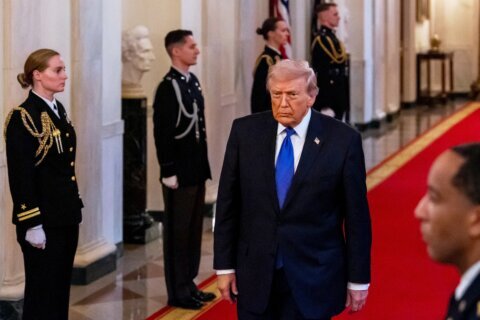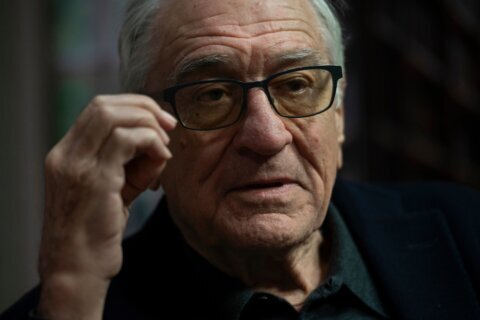Kanye West has had so many controversies you may have forgotten a few.
From his infamous interruption of Taylor Swift’s acceptance speech at the 2009 MTV Video Music Awards to his early embrace of former President Trump and his “Make America Great Again” agenda, the artist, designer and entrepreneur is, perhaps, best known for being a provocateur.
The latest calls to cancel West, who legally changed his name to Ye, may be the most intense yet.
After he wore and featured “White Lives Matter” (The Anti-Defamation League categorizes the phrase as a “hate slogan” used by White supremacist groups, including the Ku Klux Klan) apparel in his recent Paris fashion show, there was new outcry against West.
“Kanye’s actions are just so dangerous and irresponsible. I don’t care how great his music is, we have to stop supporting someone who uses their platform so irresponsibly,” TV host, professor and former CNN commentator Marc Lamont Hill posted on social media.
Another lightening rod came earlier this week, when West’s Twitter and Instagram accounts were restricted for violating policies following posts that were criticized as antisemitic. Days later, it was announced that his episode of the YouTube series “The Shop: Uninterrupted” would not release because he used his appearance “to reiterate more hate speech and very ugly stereotypes.”
This has led some to suggest that West’s career has crashed and burned and there’s no coming back from it all. But here’s why that’s not necessarily the case:
Sign of the times
For all the talk of “cancel culture,” we now live in an era where bad behavior, especially by public figures, garners all of the outrage – until it doesn’t.
Not only do we live in a society that moves fairly quickly from scandal to scandal, racism and cruelty to others no longer live in the shadows.
So while plenty of people have condemned West for his actions and comments, there are many who support both because they agree with him.
Then there is the fame factor.
Star power has only increased in recent years, especially because social media fosters a sense of intimacy between artists and their followers.
“West’s celebrity status has kept us watching and listening mostly because we’re keenly aware that so many others are also paying attention,” Washington Post senior critic-at-large Robin Givhan recently wrote.
“And each time he says something indecipherable or cruel, we recoil as if we are shocked anew, as if he has not been terrible before,” she continued. “We respond as if we believe that fame is a preventive to terrible behavior, that those who know they’re being watched will aim to be on their best behavior rather than using all that attention as an enticement to acting out.”
The Trump effect
West has been very clear about his admiration for Trump, and the two men do seem to share an approach to communication.
West recently said in an interview with Fox News host Tucker Carlson that he “started to really feel this need to express myself on another level when Trump was running for office and I liked him.”
West said he was warned against supporting Trump, telling Carlson people told him “my career would be over, my life would be over.”
Instead, West earned new fans from some of the same people who also support the former president.
After conservative author and ACT! for America founder Brigitte Gabriel tweeted her support for West, one of her followers responded, “I used to judge him quite harshly. I’m finding new respect for him now.”
The art versus the artist
It’s long been debated whether one can embrace the art without supporting the artist. West has a history of coming out on the winning side of that question.
There were calls to boycott West in 2018 after comments he made about the history of slavery in the United States.
“When you hear about slavery for 400 years,” West said during an interview with TMZ. “For 400 years? That sounds like a choice.”
Yet, a month later, all seven tracks on his “Ye” album debuted on Billboard’s Top 40 chart.
There have been several other controversies since that have not stopped West from achieving mass success with his fashion and sneaker lines.
And while West terminated his relationship with the Gap in September, and Adidas has put their partnership with him under review, he entered the public consciousness nearly two decades ago through music that people will likely continue to return to.
The first words West speaks on his first hit, “Through the Wire,” in retrospect, may have been prescient: “They can’t stop me from rapping can they?”







